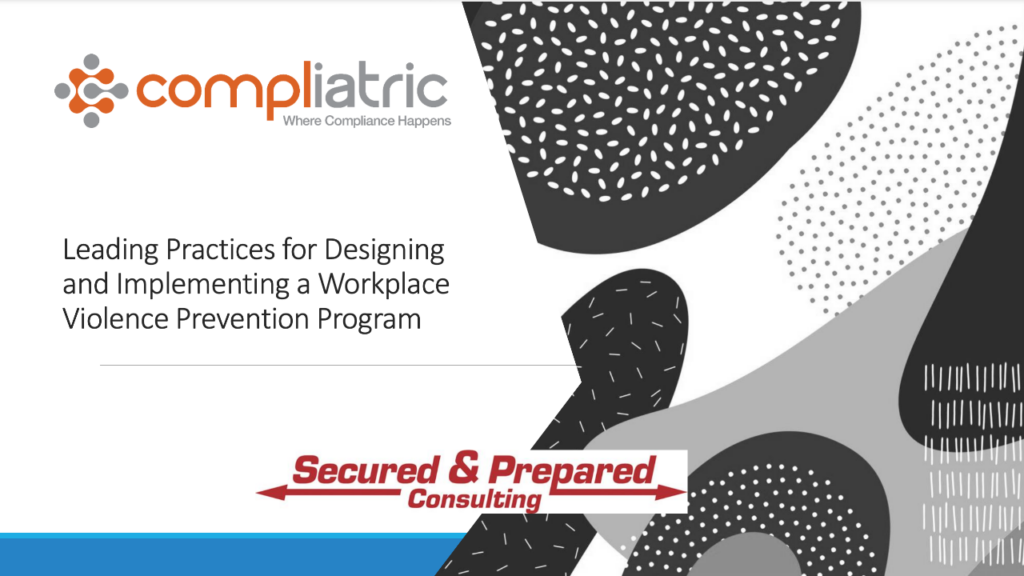Real-Time Strategic Planning for Your Health Center

Discover how Real-Time Strategic Planning streamlines strategy in health centers and nonprofits. The Strategy Screen empowers the board to prioritize organization-wide strategy, while delegating programmatic and operational strategy to staff and the CEO. This dynamic process facilitates agility, enabling focused responses to market fluctuations.
Emergency & Disaster Preparedness Basics

In this webinar, learn disaster preparedness basics and best practices for care settings. We’ll cover emergency regulations, evacuation procedures, building an Emergency Operations Plan, testing programs, staff roles, subsistence needs, communication plans, Covid and other public health emergencies, release of health info, and triage/transportation facilities. Adequate preparation can save lives in healthcare disasters.
Developing a Health Informatics Program for your Health Center

In this session, Health Center providers will share their experiences around developing a health informatics program and how they used that data to improve patient outcomes and experiences.
Clinical Changes to the Federal Tort Claims Act Requirements: A HRSA Reviewer Perspective

On April 13, 2023, the Health Resources and Services Administration (HRSA) released updates to the HRSA Health Center Site Visit Protocol. Although the majority of changes were minor, significant changes were made to Chapter 21 – Federal Tort Claims Act (FTCA). Not only do these changes impact the HRSA Operational Site Visit, but also submission of the FTCA Application that is due on June 23, 2023.
Participants will be able to utilize this webinar to understand the clinical changes made to the FTCA Requirements, as well as Chapter 21 – Federal Tort Claims Act, of the HRSA Health Center Site Visit Protocol. Additionally, this information can help to reduce the risk of non-compliance with HRSA Health Center Program Requirements and help overcome the new clinical challenges associated with the submission of an FTCA Application.
Leading Practices for Designing and Implementing a Workplace Violence Prevention Program

Violence against healthcare workers is at an all-time high. As more patient care is transitioned from acute care facilities to outpatient settings, it is important that leaders understand the facts about violence and ways to mitigate events from occurring. This presentation will describe the facts about violence in healthcare and provide leading strategies for mitigating events in the outpatient setting.
HRSA HAB Audit Tips for Part C

By the end of this training, participants will be able to:
– Identify at least two reasons why grantees fail federal audits
– Determine which audit component (administrative, clinical, or financial) is their strongest and weakest areas
– Locate appropriate supplemental resources to support a successful federal audit.
Risk Management Documentation – Requirements and Best Practices

By the end of this training, participants will be able to:
– Identify the components of a patient-centered medical home (PCMH)
– Compare and contrast PCMH and Ryan White Part C requirements
– Identify organizational improvements that can be supported with 340B funds
– Assess if their organization qualifies for a 340B program; and
– Understand how PCMH requirements can improve patient outcomes
Maximizing the Ryan White Part C Care Model

By the end of this training, participants will be able to:
– Identify the components of a patient-centered medical home (PCMH)
– Compare and contrast PCMH and Ryan White Part C requirements
– Identify organizational improvements that can be supported with 340B funds
– Assess if their organization qualifies for a 340B program; and
– Understand how PCMH requirements can improve patient outcomes
Health Center Philanthropy – Exploring the benefits and risks of fundraising for your health center

n this session, Bill Franz and Lesa Peterson will share their experiences around philanthropy for health centers and nonprofits…
340B Recertification and Audit Changes

This webinar will outline requirements and updates covered entities should be made aware of heading into annual recertification, as well as highlight key changes to HRSA’s audit data submission and review process.

